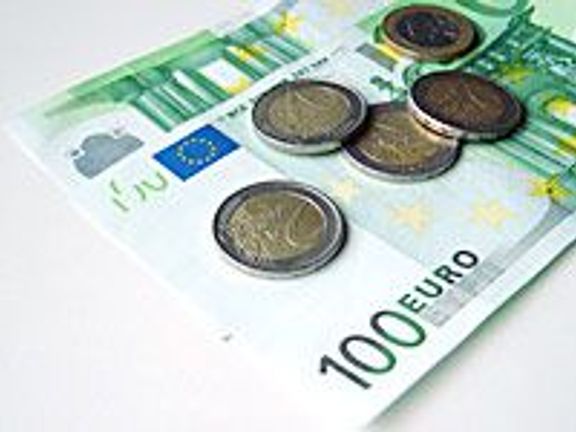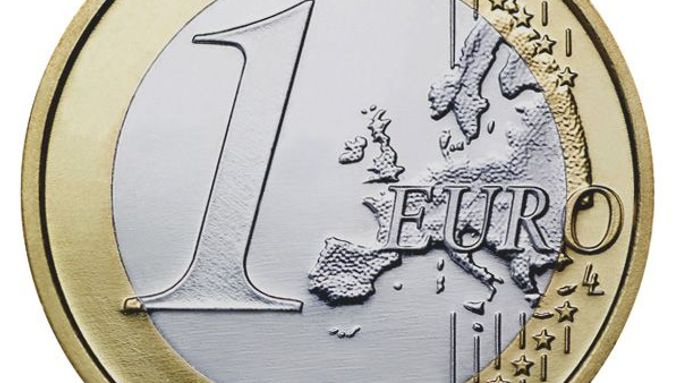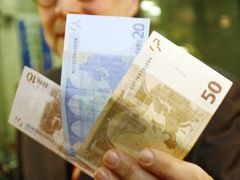Prague - Disputes about euro in the Czech Republic are escalating with politicians and economists unable to find the compromise.
Both sides agree that the Czech Republic will accept the common European currency at some point, but the Czech government is hesitant when it comes to setting a precise date, which is something the economists as well as businessmen (and businesswomen) are calling for.
The dispute has been reflected in a recent prognosis made by 30 global economic experts who were asked by Reuters agency to give their predictions.
The Czech Republic is perceived by them as one of the countries that have not put much work into preparations so far, but would be able to catch up within the next four or five years.
The Czech Republic is said to be better prepared than Poland or Latvia that are in the same category. Czechs have been fulfilling the so-called Maastricht criteria, and their GDP per capita is the highest from among the mentioned countries.
Topolánek cautious
However, Czech Prime Minister Mirek Topolánek is somewhat skeptical about the results. On last week's forum in Prague he said that it is impossible today to set an exact date for the euro switch.
"Besides the Maastricht criteria we also have to consider the real convergence of the Czech economy in relation to other eurozone countries, the flexibility of the job market etc.," said Topolánek, stressing that the Czech Republic will reach only eighty per cent of the expected European ecomic performance with local prices somewhere near seventy per cent of the European average.
If the Czech Republic accepts euro, the Czech businesses will lose protection that the Czech currency provides them with. That might jeopardize them in the tough European competition.
The euro switch would also make the prices rise towards the European level, which would get the inflation into a full swing.
Mr. Topolánek was backed by the Minister of Industry and Trade Martin Říman as well as Deputy Prime Minister for European Affairs Alexandr Vondra. "The exact date for conversion cannot be set before the results of the public finance reform are clear," Vondra said.

Infobox
Euro in new EU member states
- 2007 Slovenia
- 2008 Cyprus, Malta
- 2009 Slovakia
- 2011 Estonia, Lithuania
- 2012 Bulgaria, Czech Republic, Poland
- 2014 Hungary, Romania
Apart from politicians, the only economists who share the concerns are the members of the Czech Central Bank who are appointed by the euroskeptic president Václav Klaus.
Business is ready
Three quarters of Czech businessmen wish to start using euro as soon as possible based on the research conducted by SME Union Czech Republic.
The main reason is the hope that Czech enterprises will save the money for currency conversions and have more chances to succeed in the European competition.
"The Czech Republic is considering the euro switch and the risks involved more intensively than other European countries. If we could just close our eyes and all of a sudden all Crowns will be converted into euros there will be no economic problem," says Petr Očko from Telefónica company.
Tomáš Sedláček from the ČSOB bank expects euro to push the inflation up temporarily, however he does not expect the inflation to exceed two percents.
"The inflation will be combined with higher salaries, so people will be actually better off," says Mr. Sedláček.
Taming the deficit
The high inflation presents more of a problem for Baltic states and Bulgaria whereas the Czech Republic, Poland and Hungary should be more worried about their budget deficits.
Petr Očko points out that the Czech government wants to get the deficit under control within foury years. The plan is to get it below one percent of GDP in 2012.
"But the government is not consistent. It promises the fiscal consolidation within the next four years, but on the other hand it does not guarantee for sure that the deficit will get under control," says Mr. Očko.
In his opinion the Czech Republic will be ready to accept euro at the earliest in 2013 because the government wants to take only slow steps in deficit reduction. If the government does not make the decision, though, and does not set the date, it might slow the euro switch process even further, he adds.
"The major problem is that there are two different parties of euro opponents and euro supporters and there is no serious debate about euro's real pros and cons," says Martin Kupka from ČSOB.


